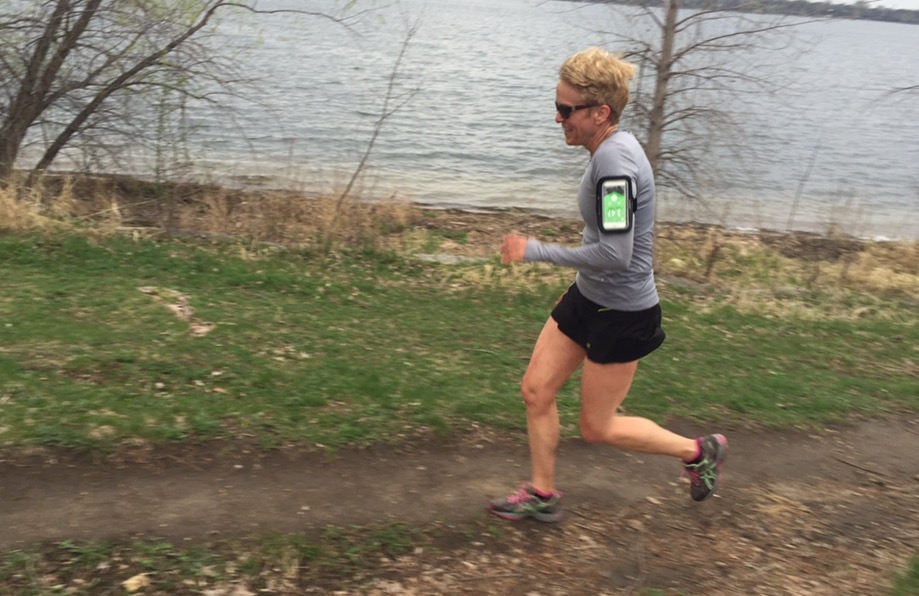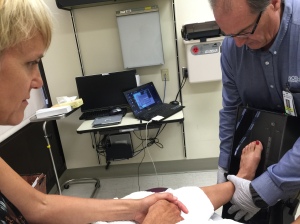Giving foot pain the boot
 Linda Beaverson is an active runner, biker and long-boarder. When foot pain started affecting her lifestyle she knew it was time to get help.
Linda Beaverson is an active runner, biker and long-boarder. When foot pain started affecting her lifestyle she knew it was time to get help.
“I thought maybe I needed to do more stretching, or perhaps it was from running,” she said. “So I checked on runners’ websites and I also talked to others who had similar symptoms.”
Many of the people she questioned said they had foot pain for months, and after trying tips from friends and website-suggested remedies, at some point they went to see a podiatrist.

That’s exactly what Beaverson decided to do. Podiatrist Dr. Kimberly Bobbitt examined her feet and confirmed the diagnosis of plantar fasciitis. She prescribed stretching exercises, orthotics, and a splint for Beaverson to wear while she sleeps.
“Plantar fasciitis is a painful condition that affects 10-11 percent of the population,” Dr. Bobbitt explains. It occurs when the plantar fascia – a thick band of tissue that runs from the heel to the toes to support the arch – becomes inflamed.”
Many people see their primary doctor first and then are sent to a podiatrist for care. Treatment depends on the severity of the problem, foot structure, and if the nerve is also inflamed.

Linda Beaverson has her foot measured for orthotic inserts.
“My foot felt better after the first night of wearing the splint,” said Beaverson, “but I want to be sure I’m doing everything I can to avoid further injury.” That’s why she also decided to get measured for orthotic shoe inserts by North Star Podiatric Lab, Inc., a company that does fittings weekly at HCMC.
“Our standard first line of care includes stretching, icing, support with shoes, orthotics and non-steroidal anti-inflammatory drugs,” said Dr. Bobbitt. “I also make sure patients understand the importance of avoiding walking barefoot. In more severe cases or when the pain does not respond to first line treatments we consider steroid injections, night splints and physical therapy. In the most severe cases we will immobilize patients in a boot or a cast with crutches. Surgery is rarely needed unless a year of treatment options have been unsuccessful at reducing symptoms.”
Dr. Bobbitt recommends wearing supportive shoes with good arch support and not going barefoot (even at home) to help avoid the condition. Stretching the calf muscles can also reduce the risk for plantar fasciitis, which is common in pregnancy and for people with either low or high-arched feet.
The Podiatric Medicine and Surgery Department staff at HCMC provide medical and surgical care of all conditions of the foot and ankle – including plantar fasciitis.
The Podiatric surgeons can also correct painful complex deformities of the foot and ankle and repair trauma including fractures and arthritis following neglected fractures. All of the staff podiatric providers have a keen interest in providing state of the art care in diabetic wound care and diabetic limb salvage. The providers work closely with many medical specialists at HCMC to ensure that our patients suffering from diabetes or vascular disease maintain their ability to walk and to keep their independence.
For more information or to schedule an appointment call 612.873.6963.

